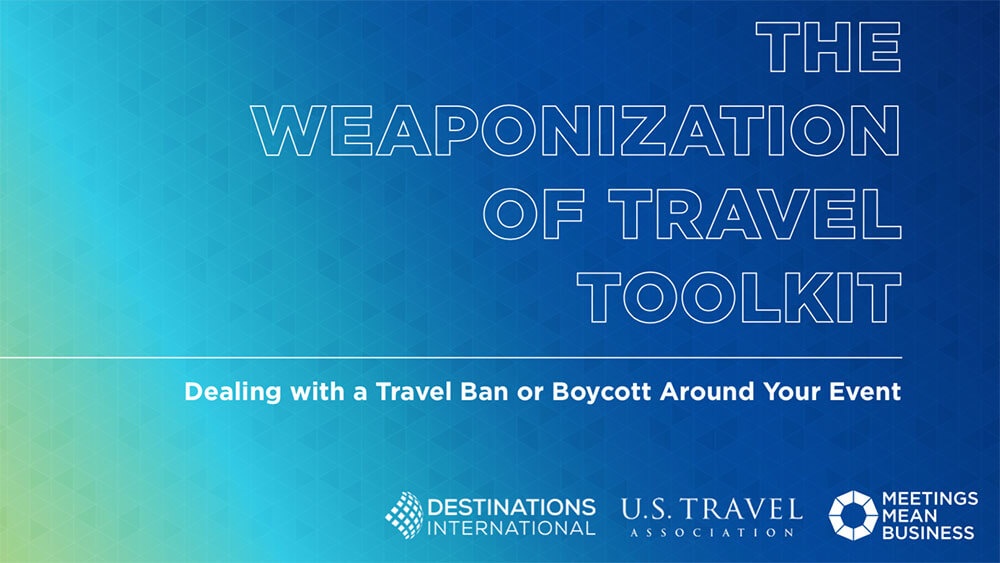Seven out of 10 meeting and event planners are familiar with travel bans and destination boycotts— intended to undermine the passage of controversial legislation — but of that 70 percent, only 5 percent feel “very prepared” to address them, according to a recent study cited in the newly released “The Weaponization of Travel Toolkit: Dealing with a Travel Ban or Boycott Around Your Event.” The toolkit, a joint project of Destinations International, U.S. Travel Association, and Meetings Mean Business, provides messaging, materials, and alternatives for event organizers who “have been caught in the crosshairs” of travel bans and boycotts.
In terms of attitudes, according to the toolkit, 80 percent of event planners believe a better or just as acceptable alternative to a travel ban or boycott is to work with local stakeholders to ensure discriminatory policies will not be enforced. Forty-seven percent said adding a session to their conference program that focuses on advocacy was preferable or equally effective to a boycott.
“The weaponization of travel through meeting cancellations — and more broadly, the banning or boycotting of destinations — can negatively impact the local economy and hurt innocent bystanders such as industry employees in the process,” the report said. “As industry leaders, we are mindful of the unintended consequences these actions create and we know that determining if and how to respond is tricky.”
The toolkit, which was developed based on conversations and surveys conducted with meeting and event planners in 2018, offers strategies and tips for event organizers to effectively deal with travel bans and boycotts, across four categories:
Planning and Preparation — actions to take before a travel ban or boycott arises, as well as steps to take for an event taking place in a destination that is currently being targeted.
Key Messages — to send to key stakeholders about a travel ban or boycott. These messages, tested among meeting and event planners in the United States who regularly recommend, select, and evaluate destinations as part of their job, help contextualize the actions your organization is taking to ensure a successful event.
Crisis Response — the best way to respond to a travel ban or boycott quickly and effectively. Strategies include primary considerations, such as the safety implications of your event and volume of participation in the ban or boycott, as well as secondary considerations such as media coverage of the issue and social media mentions of your organization or event.
Sample Communications — suggested emails to send to attendees, a sample press statement, and a tweet sheet.
Go to Destinations International to download a free PDF of the Meeting Planner Toolkit.
Casey Gale is a Convene associate editor.

